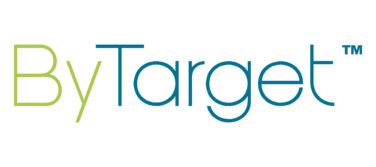Agility benefits the entire value chain process, from basic research to clinical development, to marketing communications. McKinsey explains that with an agile framework, change becomes part of the norm (rather than a disruption that seems to crop up randomly every other year), and it evolves fluidly and naturally—often bottom-up, without intervention from the top. Enhancing promotional review agility in a digital world may represent one of the more interesting and needed applications of agility. By its very nature, digital engagement is designed to be responsive to customer information needs.
The key question: Is it possible to have a fast-moving ad/promo review process while ensuring regulatory compliance?
I believe yes, by combining agile frameworks that navigate disruption with the aid of AI/Machine Learning (ML) for quality control.
Agile frameworks facilitate an iterative and incremental approach to achieving progress for defined goals, for example, streamlining the review process for digital content. Agile methods utilize time-boxed periods called Sprints to complete a set amount of work. Each planned Sprint is assigned a unique list of deliverables. At the end of every Sprint, a Retrospective looks to improve the way forward. This ongoing feedback loop welcomes changes, even late in the development process.
“As life sciences organizations are under constant pressure to deliver more, better, faster, they need to do so in a way that removes waste and improves over time,” says Eric Naiburg, VP, Marketing & Operations of Scrum.org, one of the earlier, more popular agile frameworks developed.
Sandy Kearney, Managing Partner, Magic Hat Consulting, which utilizes the Agile for Business framework adds: “The case for life sciences to improve the way they are processing promotional materials is evident. It’s no longer feasible to wait until the final cut to make changes.”
Fundamental Barrier to Agility: Maintaining Quality Control
Imagine sitting in a room where marketers and reviewers are co-creating promotional content. Reviewers actively partner with commercial colleagues to optimize claims and identify compliant ways to execute a new or never-tried tactic.
Commercial will expect reviewers to make quick decisions about content compliance. That’s why medical, regulatory, and legal reviewers can’t be bogged down by content submitted with basic errors which takes time away from their focus on risk tolerance. Said another way: Commercial has an obligation to submit quality content which enables the reviewer to focus on business objectives while protecting public health.
The reality: Benchmark data indicate that 25% of a team member’s time is unnecessarily spent on correcting materials with editorial mistakes or content that is clearly non-compliant. This represents nearly 8,000 hours yearly spent on rewrites for brands reviewing 3,500 materials, based on this ROI calculator. Reduce the number of materials to 2,000 and wasted hours are still high at 4,500. Even a smaller promotional campaign of 500 materials saves nearly 1,200 hours.
Consider how many small mistakes can lead to a big barrier to efficiency, including but not limited to:
- Inaccurate references
- Potentially dangerous transposed numbers (recommended dose of 35 mg appears as 53 mg)
- Missing supporting statements required for context
- Use of “watch out” words that may have triggered FDA warning letters in the past
- Basic typos
That’s why enabling technology such as ML is required if teams are to achieve true agility throughout promotional review. ML software enhances agility by supporting human expertise with automation for greater accuracy and speed—without sacrificing performance and impact.
Specifically, phrase library software can facilitate quality checks to speed up the team’s ability to quickly catch errors. Phrase matching and text analytics compares new content with source documents. Differences are highlighted in seconds for action.
Through ML software, cross-functional teams can access links in real-time to warning letters and internal documents (including recent campaigns) to resolve issues during a Sprint. And when new content consistent with approved messages (but structured differently) is approved, the team can click a button and add it to the phrase library for the next Sprint.
“We are adapting time-tested machine learning software currently used in life sciences to address promotional review needs,” explains Juin Wang, President, Redshift Technologies, which has a 20-year track record in compliance and QA. “The approach is the same: An authoritative repository of facts and expert assessments is employed to generate accurate, compliant, and reviewed communications more efficiently.”
Practicing Real-time Review
Scrum/Sprint experts suggest that even if a team has received agile training, it takes time to transition to this new process. That’s why for the first several Sprints, agile coaches recommend that the team practices.
For promotional review, a practice session would require 1) designating the brand and type of promotion to be created and reviewed, 2) putting required ML automation in place, and 3) ensuring that participating cross-functional teams adopt a business partnering mindset.
Regarding mindset, experts quoted in this column have underscored that without a trusting mindset, a streamlined review process is nearly impossible. There is good news: Metrics from a new business partnering certificate program shows that participants doubled their perceived confidence and effectiveness when collaborating with other functions. You can learn more at https://bit.ly/2DTzjXH.
Shining the Spotlight on Protecting Public Health
An agile framework with ML enabling technology is now in place so cross-functional teams can practice making faster decisions in less time. However, we must always remember that OPDP reviews advertising and promotional labeling to ensure information in these materials is not false or misleading. Their mission: “to protect the public health by assuring prescription drug information is truthful, balanced, and accurately communicated.”
So, as we scrum and sprint, let’s never forget that we have a responsibility to the patients we serve.






